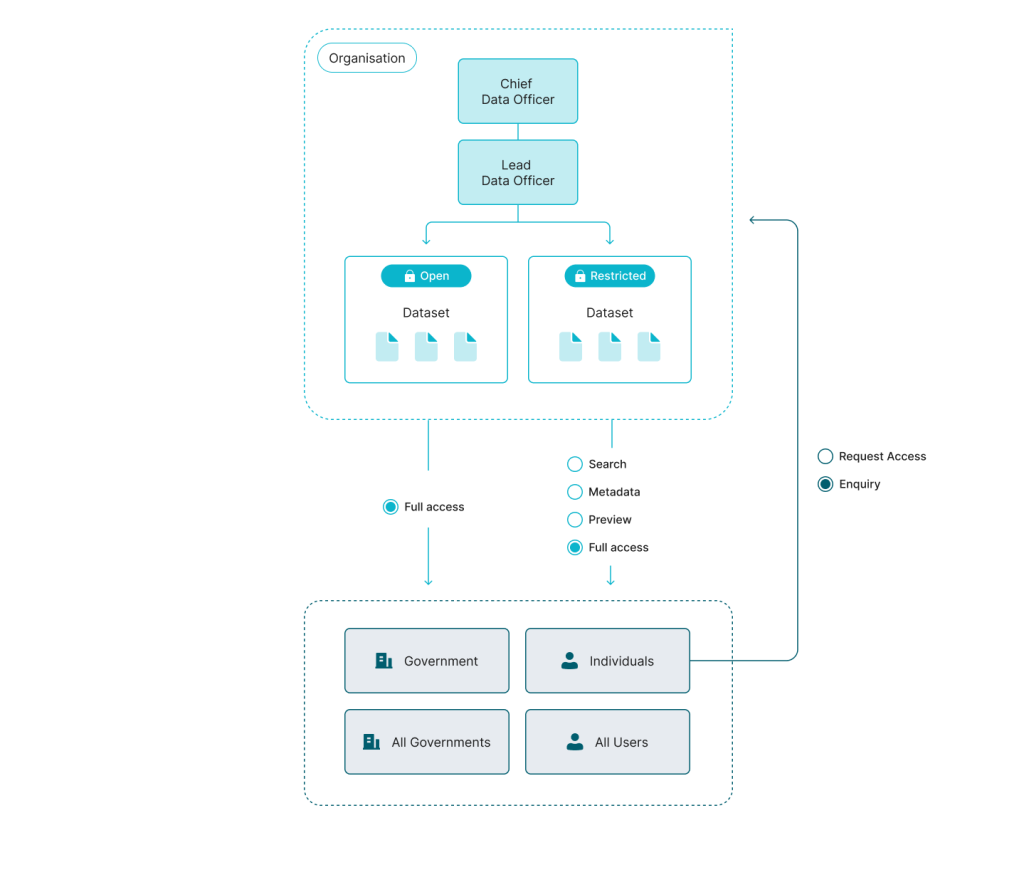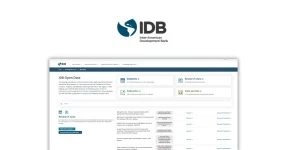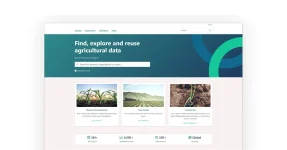Link Digital’s Secure Data Exchange (SDE) is a new approach to helping organisations exchange data in a completely secure domain. While primarily aimed at government departments and related entities, SDE can be utilised by data custodians in other large, complex organisations, including not-for-profits and corporates, who are seeking to securely share data across their domain.
What problem is SDE designed to address?
Governments at all levels are collecting and using data more than ever to increase transparency and inform policy development and service provision. But as the amount of data increases, so too do the challenges of effectively managing and sharing data across its life cycle.
The sheer mass of data can leave governments with little better than a veritable data swamp, from which it is impossible to derive any real insights or benefit. This situation also makes it difficult and time consuming for staff to find the right data for their project or research, ascertain its quality, and identify its custodian.
There are also major issues related to sharing data effectively and securely. For example, the data may include private information that once shared can easily find their way into the public realm, with major reputational and legal ramifications.
SDE is a powerful, flexible, and easy to use approach for data custodians to manage the complete lifecycle of their data across multiple departments, organisational branches, and internal and external users, in a controlled access environment. Link Digital has already delivered the SDE capability to a government client in Australia, resulting in increased security, efficiency and collaboration.

What SDE can offer
SDE is not the solution to all the problems facing data custodians in government and other large organisations. Rather, it is an approach that utilises open sources technology, such as CKAN, the Comprehensive Knowledge Archive Network, and Drupal, a content management system used to build and manage websites, to assist large organisations to develop the innovative solutions they require to simplify complex data sharing and delivery across their operations.
SDE makes it easier and more efficient to reuse, evaluate and securely share internal data in one core data platform. It provides an intuitive and simple to use workflow to manage data requests, negotiate and generate data sharing agreements, grant and revoke data access, and discern patterns of data usage over time and across different levels of operations and functionality.
And because SDE is open source, there are no licensing fees, making it not only an accessible but a cost-effective solution.
SDE has the following functionalities:
Structured data sharing while keeping flexibility and control
SDE allows government departments and other large organisations to retain control of their important data while reaping the benefits of collaboration that can come from its sharing. It does this by assisting data custodians to:
- Create and oversee a highly customisable workflow to manage the complex movement of data across multiple departments, organisational areas, projects, and data users.
- Control who can access their data, and the conditions under which this occurs.
Improved visibility in terms of who is using your data
SDE provides a streamlined, easy-to-use and interpret dashboard where data custodians can view all data requests, their status (pending, final approval, ended), and all data sharing agreements. This includes the ability to revoke approval to use data.
Improved metadata
A customised metadata scheme is incorporated into the workflow of the SDE system. This complies with the criteria set out in the latest Data Catalog Vocabulary standards, designed to facilitate interoperability between data catalogs.
Improved trust and accountability
The creation of a streamlined approval procedure improves transparency in the use of data and helps foster a culture of trust and mutual accountability around data sharing within organisations.
Central to this is a highly functional internal workflow process that enables the creation of data sharing agreements. A requester wanting to access data will need to apply for approval from its custodian. SDE enables the two parties to negotiate the conditions for data sharing. Once complete, this will result in an automatically generated downloadable PDF agreement, that can include:
- What data can be accessed.
- Who can access and use the data.
- The purpose for which the data can be used.
- The time period for which the data can be used.
- The conditions under which data access can be revoked.
One point of access and one point of truth
SDE allows data custodians to see all their data in one place. This ensures that there is one source of truth for the custodian’s data sets and prevents aged or incorrect data from being shared. Link Digital can integrate SDE into a data lake, data stores, etc, so that the data sharing agreement is always pointing to the most up-to-date data in core systems. These operations all sit behind corporate Identity Access and Management systems, allowing confidence when users are updated on the core security platform.
Conclusion
While transparency continues to be vital to government data agendas, there is an increasing focus on data management; how the considerable and growing amount of data being held can be better stored and catalogued, and how it can be made more discoverable and shareable—to improve service provision and policy development.
SDE offers government and other large organisations the approach and tools to develop innovative, cost-effective solutions to the challenges of better managing and sharing their data.
Get in touch
We, at Link Digital, work with governments, NGOs, research, and academic institutions worldwide to help them create meaningful change with data, and SDE is one of the many approaches we can employ. If you are interested in hearing more, tell us about your project, and one of our data experts will be in touch.





